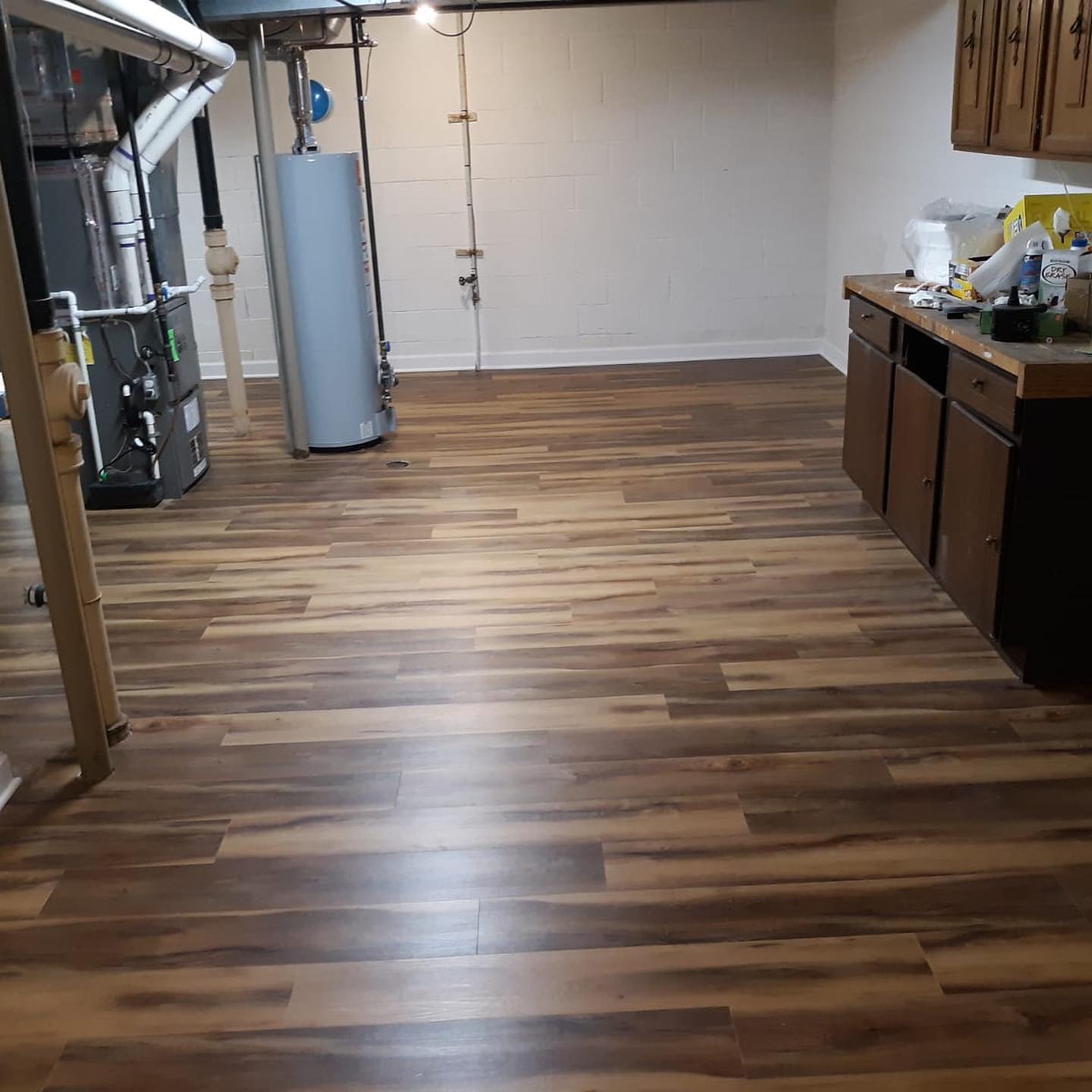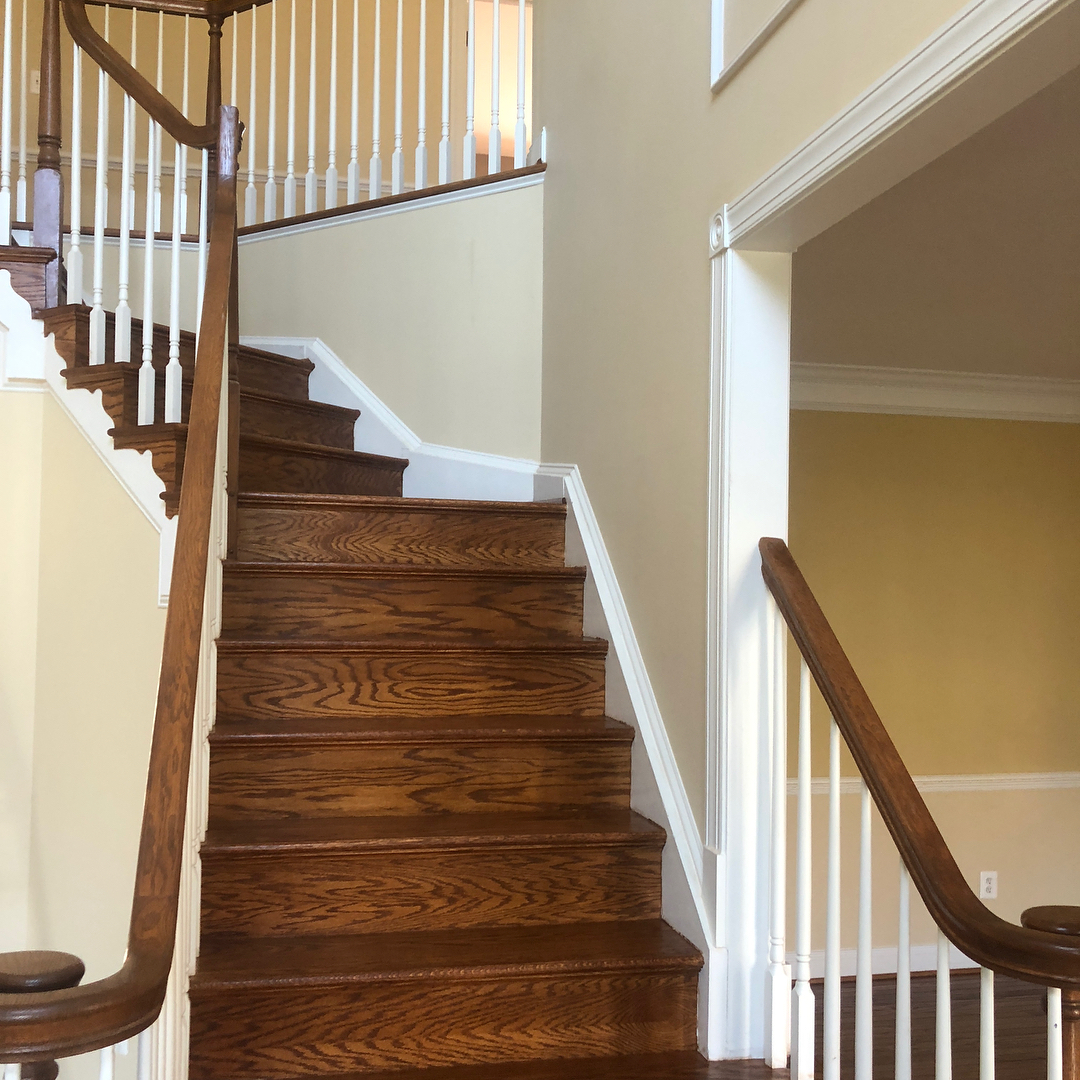Choosing the Right Hardwood Species for Your Home’s Traffic Level
Finding the Perfect Hardwood: How to Match Your Floors to Your Home’s Traffic Level
Most hardwood floors wear out faster than you expect, especially with kids and pets around. Picking the wrong type can mean scratches, dents, and costly repairs. This guide on hardwood species durability MD and the Janka hardness scale guide will help you find the best wood for high traffic areas. Ready to settle the oak vs hickory vs maple floors debate and choose a floor that stands up to your home’s hustle?
Understanding Hardwood Durability
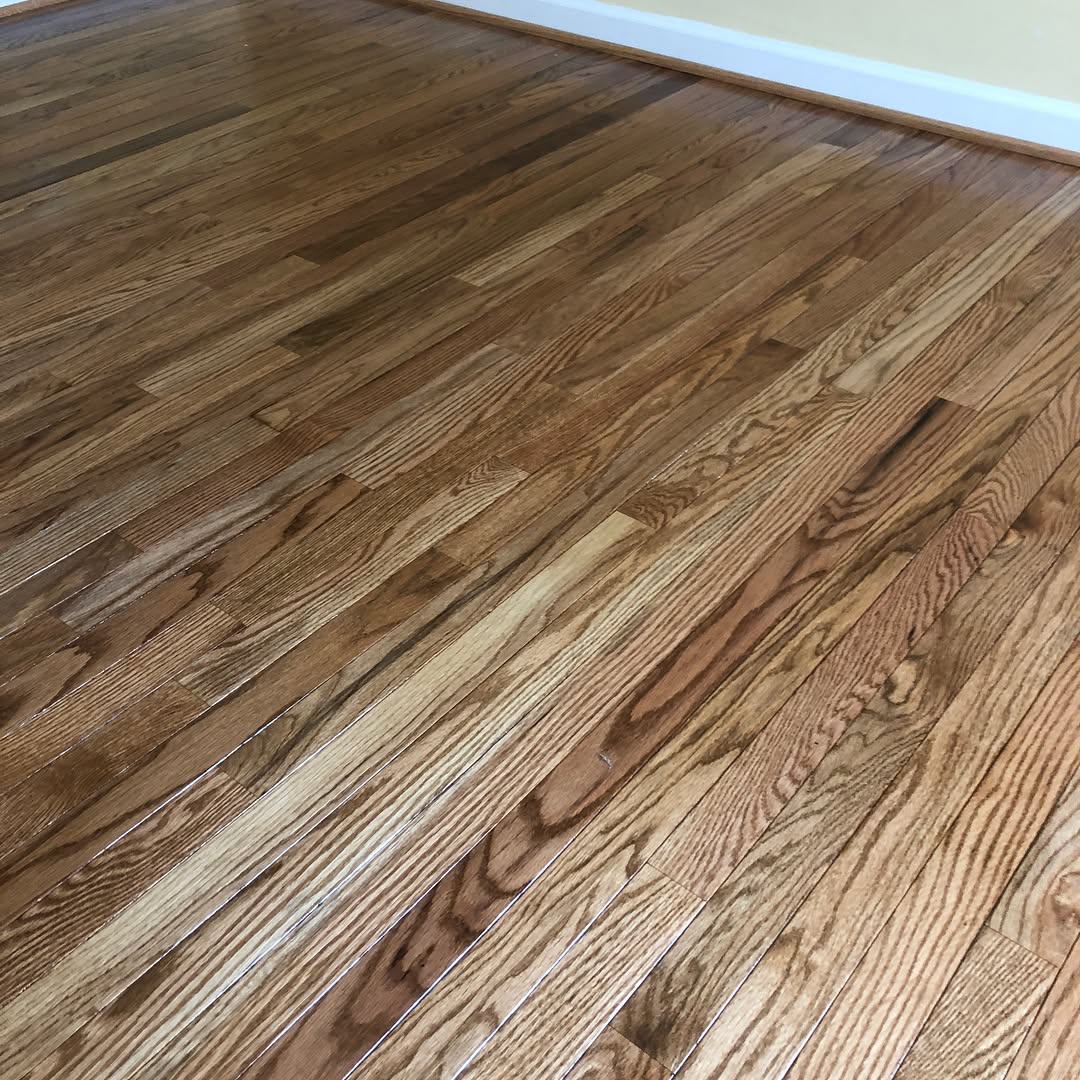
The Janka Hardness Scale Explained
The Janka hardness scale serves as the standard measurement tool for rating wood hardness. This scale measures the force required to embed a 0.444-inch steel ball halfway into a piece of wood. Higher numbers indicate harder woods that resist denting and wear better in high traffic situations. For homeowners in Maryland considering hardwood species durability MD factors, this scale provides valuable insight when selecting flooring materials.
How Traffic Affects Your Floors
Daily foot traffic creates constant stress on hardwood floors. In busy households with children, pets, or frequent guests, softer woods can show wear patterns within months. High heels, pet claws, and dropped objects create dents and scratches that accumulate over time. Understanding your home’s specific traffic patterns helps determine which hardness level suits your lifestyle needs.
Popular Hardwood Species Ranked by Durability
Oak: The Reliable Standard
Red and white oak have long been America’s favorite hardwood flooring choices, and for good reason. With Janka ratings of 1290 and 1360 respectively, oak provides a good balance of durability and affordability. Oak floors handle moderate to heavy traffic well while offering classic grain patterns that complement many home styles. In the oak vs hickory vs maple floors comparison, oak represents the middle ground for hardness while offering excellent value.
Maple: Smooth and Strong
Hard maple boasts a Janka rating of 1450, making it about 13% harder than red oak. Its light color and subtle grain patterns create a clean, contemporary look. Maple resists denting well but can show scratches more visibly due to its smooth grain and light coloration. For homes with active children but few pets, maple offers an excellent combination of durability and style.
Hickory: Maximum Domestic Hardness
With a Janka rating of 1820, hickory stands as the hardest common domestic wood flooring option. This exceptional hardness makes hickory the best wood for high traffic areas where durability concerns outweigh other factors. Hickory’s distinctive grain patterns and color variations add character to any room. The dramatic appearance works particularly well in rustic or country-style homes.
Exotic Hardwoods: Ultimate Durability
Brazilian cherry (2350), ipe (3680), and Brazilian walnut (3684) represent some of the hardest flooring options available. These exotic species offer exceptional resistance to wear but come with higher price tags and potential sustainability concerns. For extremely high traffic areas where no compromise on durability is acceptable, these exotic options deserve consideration.
Matching Wood Hardness to Your Lifestyle
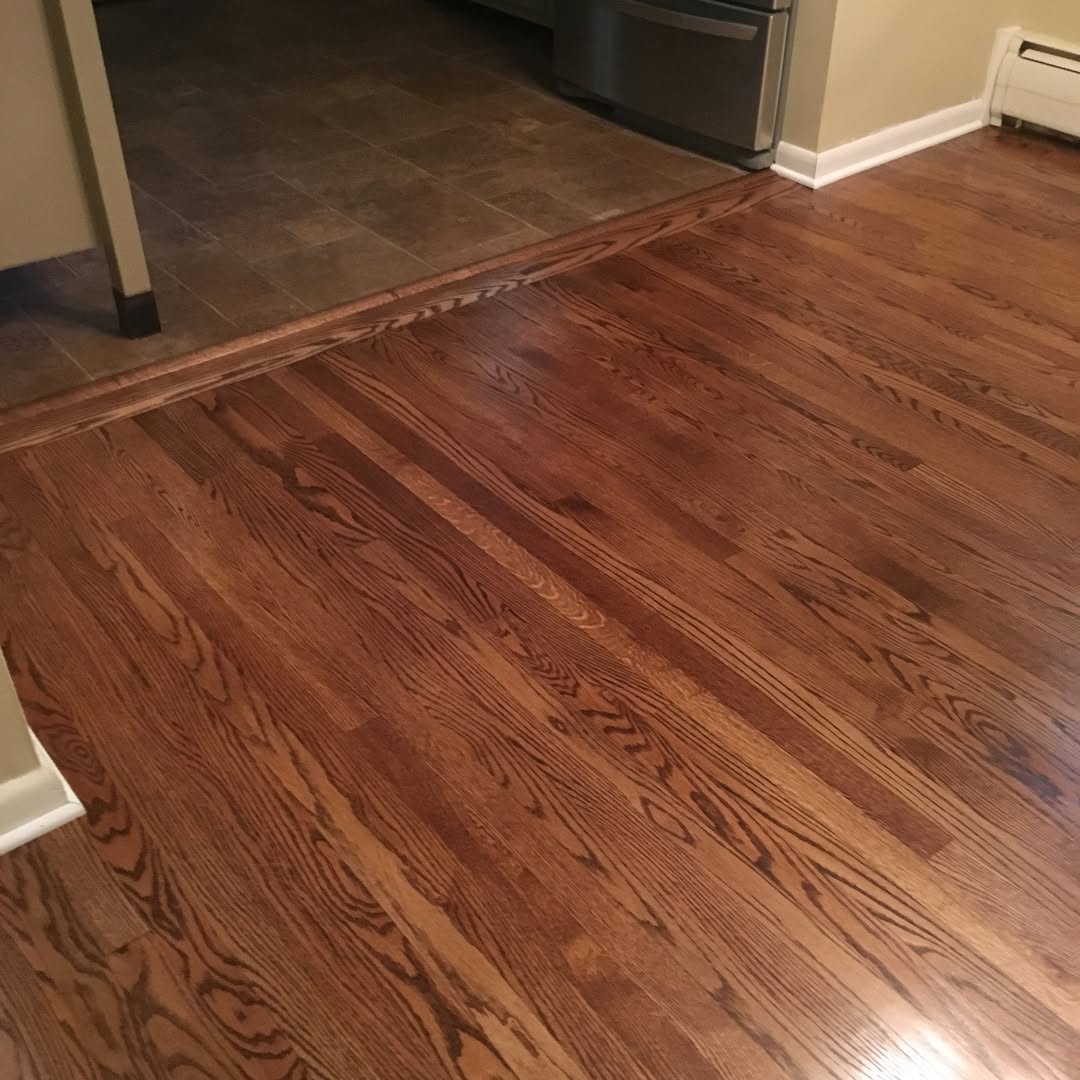
For Homes with Young Children
Active families with young children need flooring that withstands toys being dropped, furniture being moved, and general rough play. Medium to high hardness woods like oak, maple, or hickory provide good durability without breaking the budget. Consider species in the 1300-1800 Janka range for the best balance of performance and value.
For Pet Owners
Pet claws present unique challenges for hardwood floors. Beyond hardness, look for woods with pronounced grain patterns that help disguise minor scratches. Hickory works exceptionally well in homes with larger dogs, while oak provides a good middle ground. Apply additional polyurethane coatings for extra protection against claw marks and accidents.
For Empty Nesters and Low-Traffic Homes
Homes with minimal traffic can consider a wider range of options, including softer species like cherry (950) or walnut (1010). These beautiful woods might not stand up to heavy use but offer rich colors and grain patterns perfect for formal dining rooms or adult bedrooms where traffic remains limited.
Beyond Wood Species: Other Durability Factors
Finish Types and Their Impact
The type of finish applied to your hardwood significantly affects its longevity. Site-finished floors typically receive multiple coats of polyurethane that create a thicker protective layer than most pre-finished options. Oil-based polyurethanes offer greater durability but slower drying times compared to water-based alternatives. For maximum protection in high-traffic areas, consider aluminum oxide finishes, which can extend floor life by years.
Solid vs. Engineered Hardwood Considerations
Solid hardwood can be refinished multiple times over decades, making it ideal for forever homes where long-term value matters most. Engineered hardwood, constructed with a real wood veneer over plywood layers, offers better stability in humid environments but can typically only be refinished once or twice depending on veneer thickness.
Installation Patterns That Enhance Durability
Strategic Placement of Different Species
Consider using harder woods in entryways, kitchens, and main living areas while reserving softer species for bedrooms and less-used spaces. This strategic approach maximizes your budget while ensuring appropriate durability where it matters most. A hardwood species durability MD specialist can help design a transition plan that looks intentional rather than piecemeal.
The Role of Area Rugs and Runners
Strategic placement of rugs in high-traffic paths protects your investment while adding style. Runners in hallways, entry mats at doorways, and area rugs in living rooms significantly reduce wear patterns. Ensure rugs have proper backing that won’t scratch floors, and rotate them periodically to maintain even wear.
Maintenance Practices for Maximum Longevity
Daily Care Routines
Regular sweeping or dust-mopping prevents fine grit from scratching your floors. Clean spills promptly to prevent moisture damage. Use only manufacturer-recommended cleaning products, as many common household cleaners can damage finishes or leave residue that attracts more dirt.
Professional Maintenance Schedule
Establish a relationship with a flooring professional who can provide periodic deep cleaning and maintenance. Most hardwood floors benefit from professional attention every 3-5 years, depending on traffic levels. These services often include light buffing and recoating that extend the time between full refinishing jobs.
Making Your Final Decision
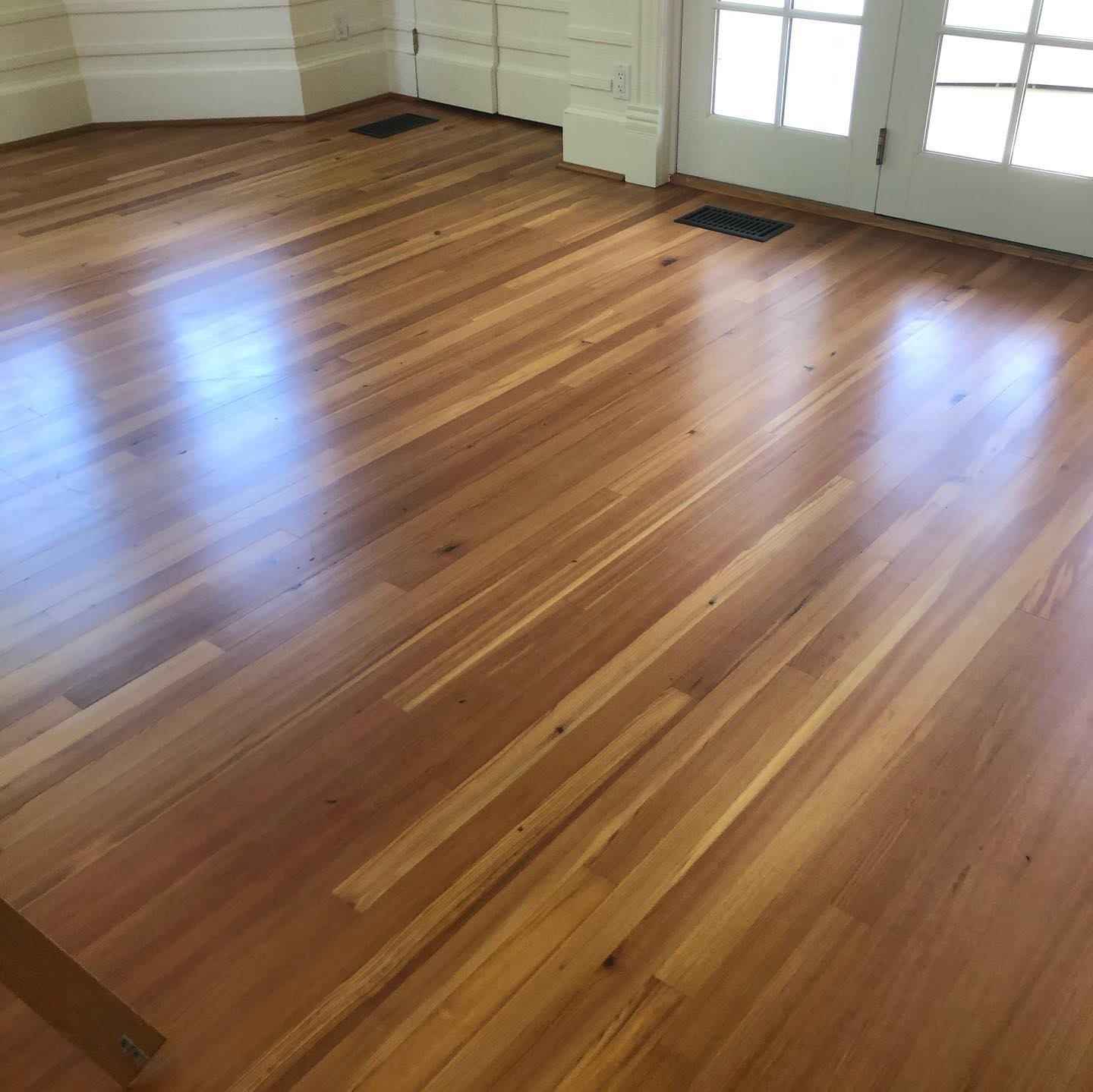
Sample Testing in Your Home
Before making a final commitment, bring sample boards home to test in your actual space. Place them in high-traffic areas and observe how they look under different lighting conditions throughout the day. Some retailers offer larger sample boards that better demonstrate how the full floor will appear.
Cost vs. Longevity Calculations
When comparing options, calculate the true cost over time rather than just the initial installation expense. A more expensive, harder wood might actually prove more economical if it lasts decades longer without requiring refinishing. Our Janka hardness scale guide can help you make these long-term value assessments.
Conclusion
Selecting the right hardwood species based on your home’s traffic patterns represents one of the most important decisions in the flooring process. By understanding the Janka hardness scale and honestly assessing your lifestyle needs, you can choose floors that will perform beautifully for years to come. Whether you settle the oak vs hickory vs maple floors debate in favor of traditional oak, super-hard hickory, or smooth maple, your informed choice will pay dividends in beauty and performance.
For personalized advice on hardwood species durability MD homeowners can trust, contact local flooring specialists who understand regional factors like humidity levels and typical usage patterns in Maryland homes. The perfect hardwood floor balances beauty, performance, and value while complementing your unique home environment.
Fill out the form below and an AG Construction representative will contact you soon.
Contact Us Today


Whether you own a home or business, we’re your single source for complete flooring installation services! Our comprehensive services include:
- Hardwood staining, sanding, refinishing, restoration, and more!
- Carpet removal and installation
- Vinyl luxury plank replacement and installation
- Vinyl tile and COREtec installation
- And more!


